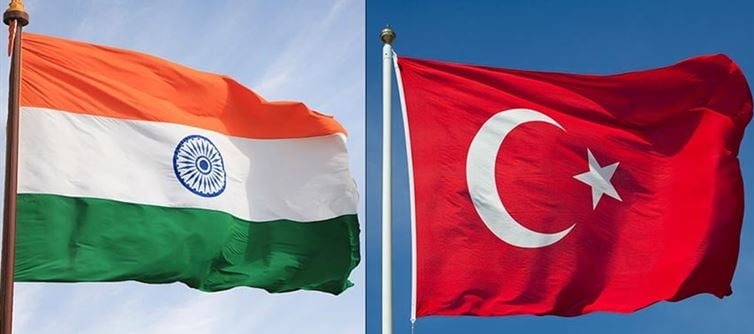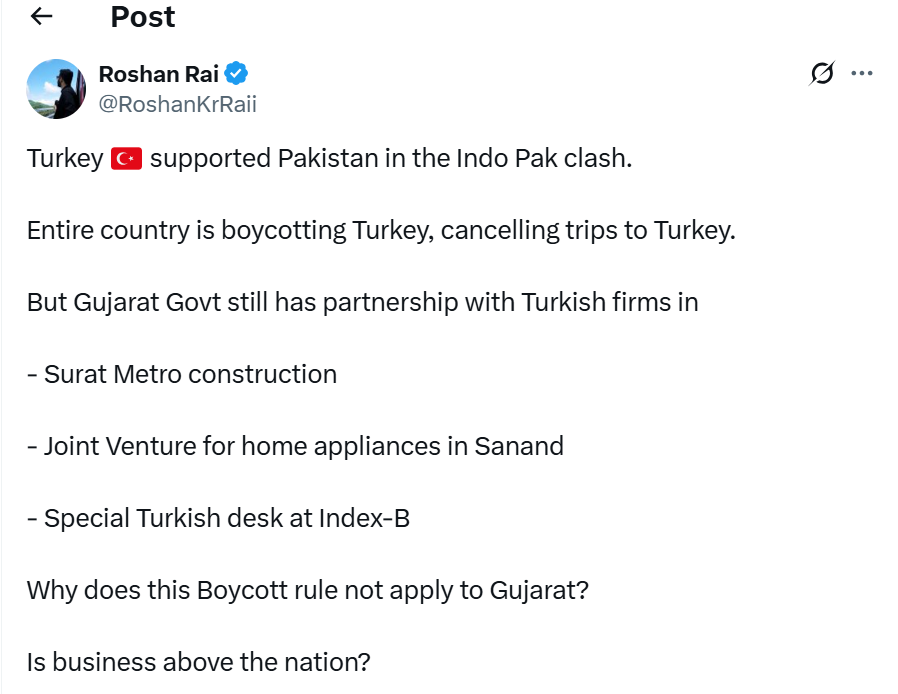
However, the reality of state-level governance and long-term business partnerships often operates differently. In gujarat, the continuation of partnerships with Turkish firms in infrastructure projects like the surat Metro or industrial ventures in Sanand reflects ongoing agreements that were likely signed well before the recent political developments. Infrastructure and industrial projects involve substantial investments, multinational collaborations, and complex legal commitments that cannot be easily reversed based on short-term political sentiments. The establishment of a Turkish desk at the Vibrant gujarat summit platform, Index-B, further underscores the state's broader vision of global economic engagement.
 This perceived disconnect raises the critical question: is business above the nation? From a governance standpoint, economic development is seen as a tool for national progress, and cutting ties with foreign partners can harm both jobs and growth. While citizens may view boycotts as a patriotic response, governments—especially at the state level—must weigh the long-term consequences of such decisions. Rather than hypocrisy, this may reflect the complexity of aligning emotional national interests with economic pragmatism. Nonetheless, transparency and sensitivity from governments about these partnerships could help bridge the gap between public sentiment and administrative policy.
This perceived disconnect raises the critical question: is business above the nation? From a governance standpoint, economic development is seen as a tool for national progress, and cutting ties with foreign partners can harm both jobs and growth. While citizens may view boycotts as a patriotic response, governments—especially at the state level—must weigh the long-term consequences of such decisions. Rather than hypocrisy, this may reflect the complexity of aligning emotional national interests with economic pragmatism. Nonetheless, transparency and sensitivity from governments about these partnerships could help bridge the gap between public sentiment and administrative policy.




 click and follow Indiaherald WhatsApp channel
click and follow Indiaherald WhatsApp channel